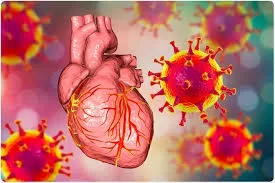In a promising development for individuals with chronic kidney disease (CKD), a recent study suggests that following a diet high in proteins could potentially reduce the risk of death among these patients. The research, conducted by experts from Karolinska Institutet and Stockholm University in Sweden, highlights the potential benefits of protein intake for older adults with CKD.
Chronic kidney disease affects approximately 850 million people worldwide, with the majority residing in low-income and lower-middle-income countries. The study, which tracked 8,543 community-dwelling adults aged 60 and older from March 2001 to June 2017, and followed up on mortality rates from December 2021 to January 2024, revealed significant findings.
Published in JAMA Network Open, the study found that higher consumption of total, animal, and plant proteins was associated with lower mortality rates in older adults with mild or moderate CKD. The researchers noted that the advantages of increased protein intake seemed to outweigh any potential risks, particularly in individuals whose disease progression may not significantly impact their survival.
The team suggested that protein supplementation could lower mortality risk in older adults by increasing levels of branched-chain amino acids. These amino acids contribute to improved muscle mass and strength, reduced bone loss, enhanced bone mineral density, decreased frailty, and better cardiovascular function and recovery from illness, including wound healing. Conversely, protein deficiency in older adults can lead to impairments in muscular, skeletal, and immune function.
Dr. Sudhir Kumar from Indraprastha Apollo Hospitals, Hyderabad, emphasized that a diet rich in proteins would not damage kidneys. He clarified on X.com, “Optimum protein intake is safe for kidneys,” urging individuals to consume about 1 gram of protein per kilogram of body weight if they are healthy. Dr. Kumar also highlighted the typical Indian diet’s high carbohydrate content and relatively low protein levels, advocating for a conscious effort to increase protein intake. He advised consulting with a nutritionist or physician for personalized dietary recommendations, particularly in the context of physical activity or existing health conditions.
This study offers new insights into dietary management for CKD patients and underscores the potential of protein-rich diets to improve health outcomes and quality of life for older adults facing this challenging condition.











